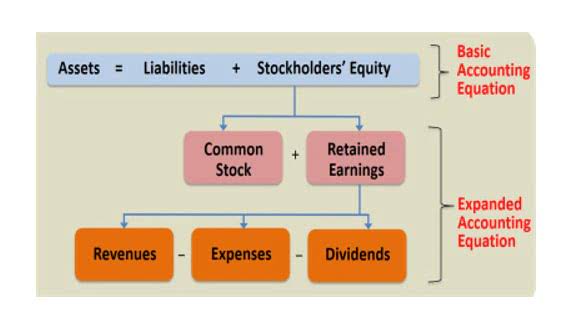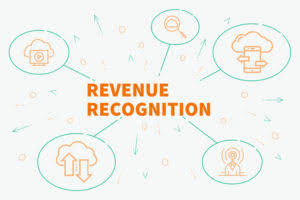
In an Accounting system using Blockchain, all financial transactions are recorded on a shared digital ledger. This ledger is accessible to all participants within the network, eliminating the need for intermediaries and minimising the risk of data inconsistencies. Each transaction is time-stamped, encrypted, and linked to the previous transaction, creating an immutable and transparent chain of financial events. With the ability to continuously monitor transactions and financial data in real time, businesses can generate up-to-date financial statements instantly. This allows companies to provide stakeholders with accurate and current information at any given time rather than relying on periodic reports. Real-time financial reporting will increase transparency and provide a detailed reflection of a company’s financial position, helping executives and investors make more informed decisions.
Key Benefits of Blockchain in Accounting

Uncontrolled outside participation, compensation of miners and the confidentiality concern were previously identified as reasons why businesses might not implement public blockchains. The view in the literature is that businesses will therefore choose to implement private blockchains (Coyne & McMickle, 2017; Yu et al., 2018). The benefit of public proof-of-work might be lost and therefore an alternative means to blockchain verification might be needed (Yu et al., 2018). A private blockchain is characterised by a permissioned ledger, while public blockchains are characterised by public decentralized ledgers that are accessible to everyone who desires to participate. In other words, blockchain in accounting participation is free as there is no condition attached to participating in the process of creating or adding blocks to the chain (Buterin, 2015).
How is Blockchain Used in Financial Transactions?
These studies provide valuable references and insights, further underscoring the importance and potential value of applying blockchain technology in enterprise financial accounting information sharing. Therefore, it writes smart contracts based on the Ethereum platform to achieve the secure sharing of financial accounting information between enterprises. This work employs a randomized experimental design approach, using a computer-generated random number program to divide 100 enterprises into experimental and control groups, each comprising 50 enterprises. Enterprises in the experimental group share financial accounting information using smart contracts on the Ethereum platform during the experiment. The financial personnel of these enterprises upload reconciled data to the corresponding smart contracts using the enterprise’s digital signatures after each month’s accounting process.
Blockchain’s Role in Financial Auditing
In summary, the exploration of blockchain technology in areas such as financial accounting, information sharing, and management systems has brought forth various opportunities and challenges for businesses. This work aims to explore how to apply blockchain technology in financial accounting to enhance the effectiveness of information sharing, improve information accuracy, and bolster security. Drawing insights from the research outcomes above can better understand the role and potential of blockchain technology in financial accounting and provide valuable references and insights for practical applications.

2. Data Collection
Automated smart contracts streamline audit procedures, triggering actions based on predefined conditions. This accelerates the audit process, allowing auditors to focus on analysis and insights. Enterprise financial accounting information sharing has become increasingly crucial in the context of modern, digital, and globalized business environments. However, traditional sharing methods present challenges to information credibility and security, encompassing issues like Accounting Periods and Methods opacity, data tampering, and data security. These traditional methods may result in information loss or tampering, leading to data inconsistencies and a lack of trust between enterprises. In contrast, blockchain-based sharing methods effectively address the inherent challenges of opacity, data tampering, and data security found in traditional approaches.
- These case studies underscore blockchain’s versatility and potential to revolutionize diverse industries.
- These efficiencies lower costs while improving service delivery, enhancing customer satisfaction.
- The findings indicate that blockchain technology could enhance a company’s operational capabilities, fostering business innovation and efficiency improvements.
- Blockchain’s transparency, coupled with its cryptographic verification mechanisms, simplifies the verification of financial records.
- Cryptography is the process of ensuring that information transferred from a sender to a receiver is secured.
- Embracing this technology will be crucial for staying competitive and relevant in the accounting field.
Blockchain Technology in Accounting and Auditing: A Comprehensive Analysis and Review of Feasible Applications
- A GL includes all the assets, liabilities, equity, expense, and income ledgers, which make up a complete set of the financial transactions records.
- Explore how blockchain technology is transforming accounting with enhanced transparency, efficiency, and real-time financial insights.
- Enterprises in the control group persist in employing traditional financial accounting information-sharing methods such as email and network platforms to share financial data files directly.
- Deloitte’s 2019 Global Blockchain Survey found that 53 percent of respondents say blockchain has become a critical priority for their organizations (up 10 points from the prior year), and 83 percent see compelling uses for blockchain.
- Ultimately, both for internal management and external reporting, accounts will have to consider whether new ways of faster reporting of accounting information are available for better decision making.
- Blockchain has revolutionised Supply Chain Management by providing unprecedented transparency.
The International Integrated Reporting Council (IIRC) (2018) has considered the information aspect regarding broader reporting. The IIRC proposes that entities should appoint a Chief Information Officer (CIO) who should be responsible for the capturing, analysing and providing of information for internal decision-making and external reporting. The IIRC believes that the CIO should work in collaboration with the Chief Financial Officer for both internal and external reporting. Accountants needs to be alerted that other disciplines will become more involved in reporting information and that an integrated reporting system needs to be developed in each entity. Paystand is on a mission to create a more open financial system, starting with B2B payments. Using blockchain and cloud technology, we pioneered Payments-as-a-Service to digitize and automate your entire cash lifecycle.
How Blockchain in Accounting Can Help Business Owners
The blockchain works on the distributed ledger that instantly records any transactions and displays them to authorized users. The immutable ledger eliminates the possibility of changes and is deleted once the finance-relevant operation is recorded. Finally, one of the key benefits blockchain brings to accounting is the absence of dependency on centralized units. Blockchain accounting offers exciting opportunities to enhance transparency, security, and efficiency in accounting practices.

Like many other industries, accounting is undergoing a significant transformation driven by technological advancements. The integration of AI and blockchain has not only streamlined traditional accounting practices but also redefined how financial data is managed, processed, and reported. Blockchain technology, in particular, is a transforming force to ensure financial data integrity and eliminate the risk of tempering using its decentralized ledger system. With Deloitte COINIA, hundreds of thousands of addresses can be loaded in bulk for a variety of crypto assets, and Deloitte can see 100 percent of the transactions and reconcile them to clients’ books and records. Deloitte COINIA also assists with off-chain verification of private key ownership by using an innovative, custom-developed workflow to confirm the integrity of a signed message. The tool is compatible with multiple public blockchains and digital assets, including Bitcoin, Bitcoin Cash, Ethereum, Ethereum Classic, Litecoin, Ripple, Dash, and all ERC20 tokens, with more being added on demand.
This form of blockchains has also been referred to as ‘consortium blockchains’ (Buterin, 2015b; Allison, 2015; Brown, 2015). Thus, AI in Accounting a blockchain can be referred to as a chain or record of transactions, which is continually updated by participants (known as miners), who engage themselves by providing solutions to complex computational problems. Through their activities, the miners normally produce additional blocks to the blockchain for which they are rewarded with newly minted coins as block rewards. The increase in the mining power in the blockchain system will lead to more complex problems needing to be solved before a new block can be mined (Böhme et al., 2015). There has been advancement in mining techniques with the introduction of mining chips, such as Bitshares, in several internet devices to mine new coins.





